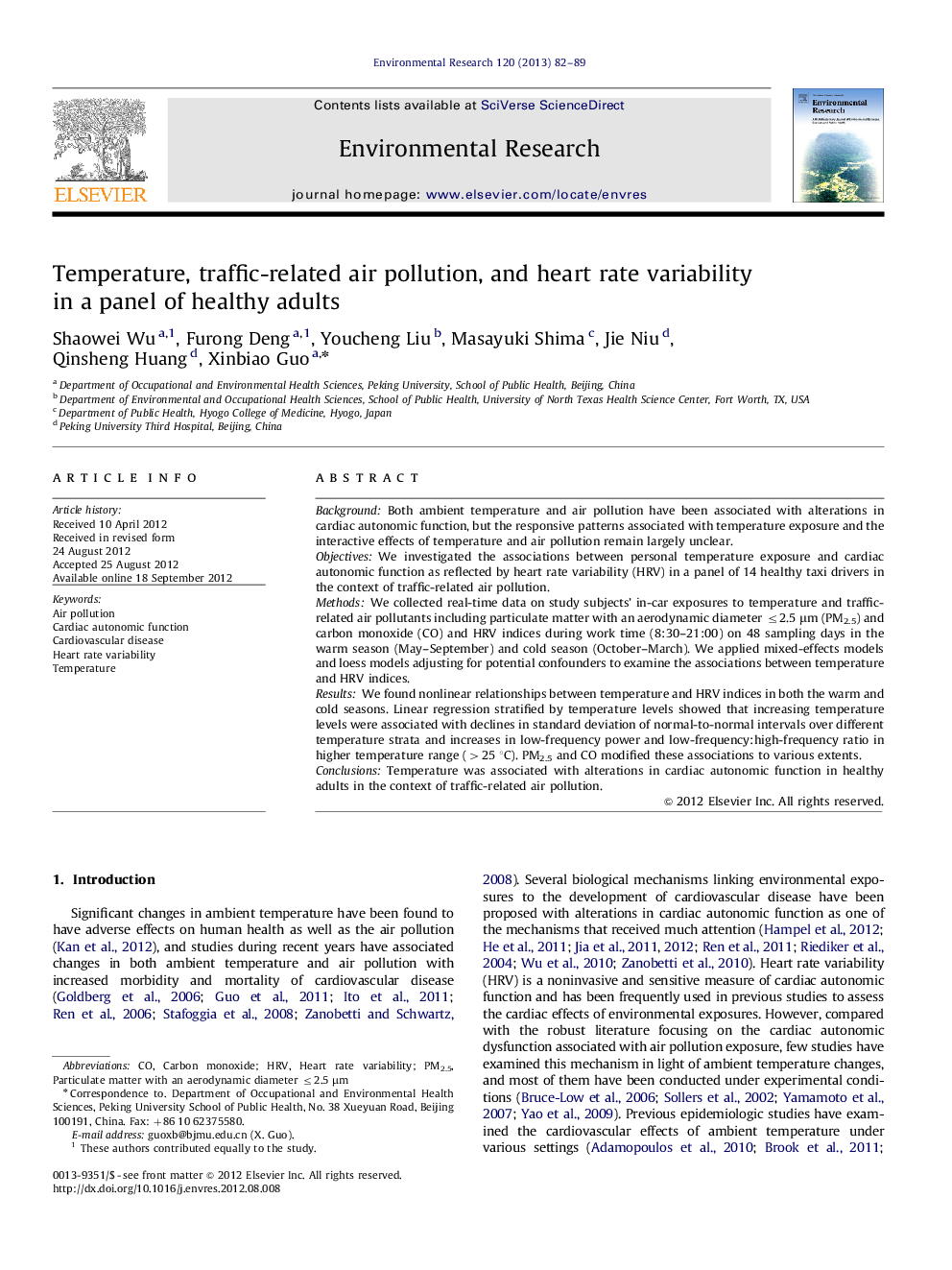| Article ID | Journal | Published Year | Pages | File Type |
|---|---|---|---|---|
| 4469905 | Environmental Research | 2013 | 8 Pages |
BackgroundBoth ambient temperature and air pollution have been associated with alterations in cardiac autonomic function, but the responsive patterns associated with temperature exposure and the interactive effects of temperature and air pollution remain largely unclear.ObjectivesWe investigated the associations between personal temperature exposure and cardiac autonomic function as reflected by heart rate variability (HRV) in a panel of 14 healthy taxi drivers in the context of traffic-related air pollution.MethodsWe collected real-time data on study subjects’ in-car exposures to temperature and traffic-related air pollutants including particulate matter with an aerodynamic diameter ≤2.5 μm (PM2.5) and carbon monoxide (CO) and HRV indices during work time (8:30–21:00) on 48 sampling days in the warm season (May–September) and cold season (October–March). We applied mixed-effects models and loess models adjusting for potential confounders to examine the associations between temperature and HRV indices.ResultsWe found nonlinear relationships between temperature and HRV indices in both the warm and cold seasons. Linear regression stratified by temperature levels showed that increasing temperature levels were associated with declines in standard deviation of normal-to-normal intervals over different temperature strata and increases in low-frequency power and low-frequency:high-frequency ratio in higher temperature range (>25 °C). PM2.5 and CO modified these associations to various extents.ConclusionsTemperature was associated with alterations in cardiac autonomic function in healthy adults in the context of traffic-related air pollution.
► We examined the temperature effects on heart rate variability in healthy adults. ► We found a nonlinear relationship between temperature and heart rate variability. ► Air pollutants could modify the temperature effects on heart rate variability. ► Temperature and air pollution may act together to alter cardiac autonomic function.
